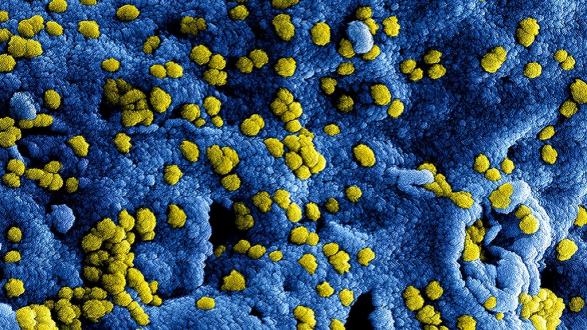In a recent teleconference, Lorraine Schneider, a Pacific Council member and program manager in training and exercise design for the Walt Disney Company’s Global Crisis Management team, moderated a discussion dissecting the global outbreak and spread of the coronavirus. The conversation featured Dr. Ben Oppenheim, a scientist at Metabiota, and Dr. Erica Ollmann Saphire, a professor at La Jolla Institute for Immunology.
Here are a few key takeaways from the call, with the full audio recording below:
- The world is increasingly connected, and therefore viruses move at a speed, breadth, and distance like never before. Saphire emphasized, “What we really need are permanent solutions against these kinds of viruses, so we’re not playing an endless game of whack-a-mole against every new one that emerges every couple of years.”
- Oppenheim discussed the current situation and economic implications, including Wuhan’s underreporting, overstretched hospital systems, and the ineffectiveness of one of the world’s largest quarantines. The outbreak will cause economic damage to supply chains as Wuhan is the center of production for many industries, including automotive and pharmaceuticals, in addition to hurting tourism industries and local business.
- In response to the concern of rising xenophobia and anti-Chinese sentiment across various continents, Saphire added that people’s fear is profoundly hurting businesses doing work in China. Establishing permanent solutions and putting scientific and medical tools in place, such as infrastructure for detection and control, will reduce these human behavioral consequences in the future.
- Oppenheim responded to concerns over U.S.-China relations, highlighting the scientific benefits of international cooperation. Although the United States responded with travel bans, restrictions, and heightened surveillance, Oppenheim stressed that epidemics are an opportunity for solidarity, because one will inevitably emerge in the United States.
- Both Saphire and Oppenheim noted the cognitive bias toward health spending and the need to view money spent on health research as an investment. Saphire explained, “X put into CDC prevention and control will save 100x in economic damage and fear.”
- Surgical masks are a courtesy to other people if you’re sick. N95 masks will prevent you from inhaling a respiratory virus. Washing your hands is key, and if you have touched surfaces that have been in contact with a lot of people, don’t touch your eyes and mouth.
Listen to the full conversation below:
_______________________
Chandra Ingram is the Spring 2020 Communications Junior Fellow at the Pacific Council on International Policy.
The views and opinions expressed here are those of the speakers and do not necessarily reflect the official policy or position of the Pacific Council.




